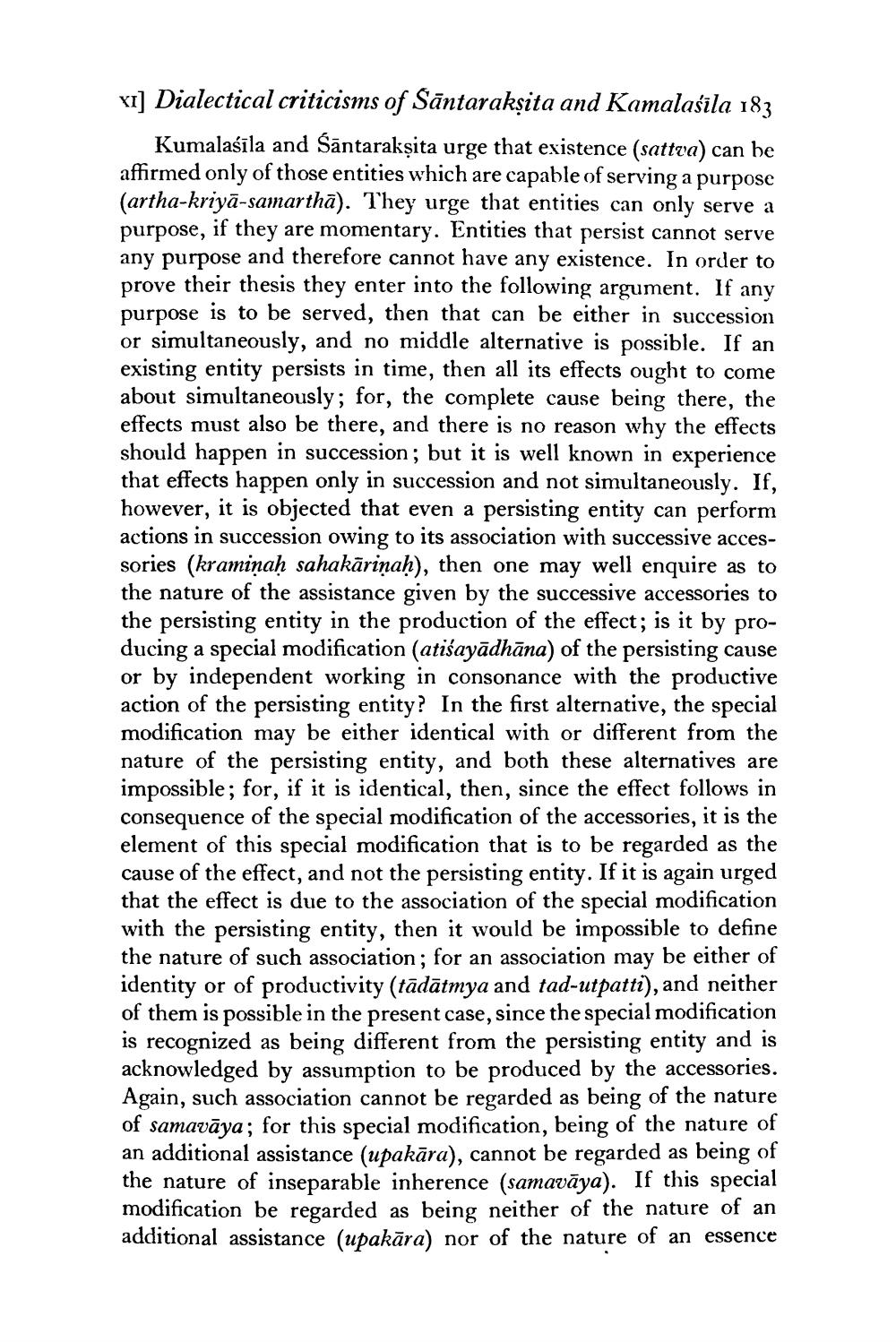________________
XI] Dialectical criticisms of Sāntarakṣita and Kamalaśīla 183
Kumalaśīla and śāntarakṣita urge that existence (sattva) can be affirmed only of those entities which are capable of serving a purpose (artha-kriyā-samarthā). They urge that entities can only serve a purpose, if they are momentary. Entities that persist cannot serve any purpose and therefore cannot have any existence. In order to prove their thesis they enter into the following argument. If any purpose is to be served, then that can be either in succession or simultaneously, and no middle alternative is possible. If an existing entity persists in time, then all its effects ought to come about simultaneously; for, the complete cause being there, the effects must also be there, and there is no reason why the effects should happen in succession; but it is well known in experience that effects happen only in succession and not simultaneously. If, however, it is objected that even a persisting entity can perform actions in succession owing to its association with successive accessories (kramiņaḥ sahakāriņaḥ), then one may well enquire as to the nature of the assistance given by the successive accessories to the persisting entity in the production of the effect; is it by producing a special modification (atiśayādhāna) of the persisting cause or by independent working in consonance with the productive action of the persisting entity? In the first alternative, the special modification may be either identical with or different from the nature of the persisting entity, and both these alternatives are impossible; for, if it is identical, then, since the effect follows in consequence of the special modification of the accessories, it is the element of this special modification that is to be regarded as the cause of the effect, and not the persisting entity. If it is again urged that the effect is due to the association of the special modification with the persisting entity, then it would be impossible to define the nature of such association; for an association may be either of identity or of productivity (tādātmya and tad-utpatti), and neither of them is possible in the present case, since the special modification is recognized as being different from the persisting entity and is acknowledged by assumption to be produced by the accessories. Again, such association cannot be regarded as being of the nature of samavāya; for this special modification, being of the nature of an additional assistance (upakāra), cannot be regarded as being of the nature of inseparable inherence (samavāya). If this special modification be regarded as being neither of the nature of an additional assistance (upakāra) nor of the nature of an essence




